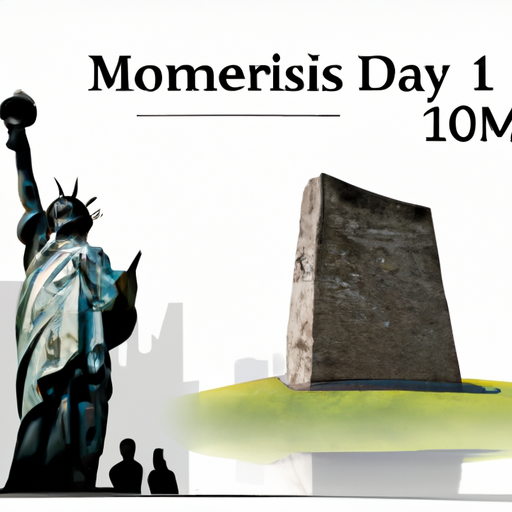A History of Babylon in the Bible
Unearth the mysterious past of Babylon as revealed in the Scriptures! Delve into a world of antiquity and uncover the secrets that have been hidden for centuries. Uncover the stories and legends that have been passed down through generations. Discover a culture steeped in tradition, shrouded in mystery and steeped in religious significance. Unearth a place of intrigue, wonder and awe. Unravel the mysteries of this ancient civilization and explore its unique place in Biblical history.

For eons, the city of Babylon has been shrouded in an aura of secrecy and intrigue. What tales have been whispered through the ages? What secrets does it contain? To uncover these mysteries, one must delve deep into its past. Through ancient texts, archaeological artifacts, and historical records, we can discover the culture and traditions of Babylon as well as its influence on Biblical events.
The Bible is filled with characters who had a profound impact on Jewish history; Daniel, Ezekiel, Nebuchadnezzar II, Esther and Mordecai to name but a few. By exploring their stories and their connections to Babylon’s past we can gain an even greater understanding of this ancient civilization’s relevance today.
From its breathtaking architecture to its legendary tales, Babylon provides us with an insightful glimpse into our own history that should not be overlooked or forgotten. Unearth the secrets that have been hidden for centuries by investigating its past! Discover a culture steeped in tradition and shrouded in mystery that still resonates with us today!
.
Introduction

A city of antiquity, its location now Iraq, Babylon’s tale is one of renown in the Bible. Nimrod, a Mesopotamian ruler of great might, founded it and in no time it had become one of the most influential cities on Earth. Its walls, temples, and ziggurats were renowned for their grandeur, as was its advanced irrigation system. Wealth and power were attributed to it; however, its pridefulness led to God’s wrathful judgment and eventual destruction. Remnants still remain today as a reminder of this Biblical city’s past.
– Historical Significance of Babylon in the Bible
A place of grandeur and wealth, Babylon has left its mark on the Bible. It was first mentioned in Genesis, and over time became a symbol of power and prosperity. The Old Testament saw it as a place of destruction and exile for God’s people, with the prophet Jeremiah warning that God would bring about its downfall due to its wickedness. In the New Testament, Babylon is used to represent Rome under Emperor Nero, representing a world hostile to Christianity where people are enslaved by sin and corruption. Revelation 17-18 speaks of an angel coming from heaven to announce judgment against Babylon, signifying God’s ultimate authority over all nations on earth. This meaning is also reflected in Jewish culture as Jews were taken into captivity by Nebuchadnezzar II after he conquered Jerusalem in 586 BC. During this period they wrote several books of scripture known as “the books of the Captivity,” which tell stories about their experiences in Babylonian captivity – providing insight into how they viewed their captors and how they faced adversity during this difficult time. All in all, Babylon’s significance in the Bible is undeniable.
– Ancient History of Babylon in Biblical Context
For millennia, the legacy of Babylon has been woven into the fabric of our collective consciousness. From its first mention in Genesis 10:10 as the birthplace of Nimrod, a mighty man, to its eventual fall at the hands of Cyrus the Great in 539 BCE, Babylon has had a profound impact on our world.
The city was home to many different religions and cultures, including Judaism and Christianity. It was also home to Hammurabi, who created one of the earliest codes of law – “The Code of Hammurabi” – designed to protect citizens from injustice and promote justice within society.
Babylon’s influence can still be seen today in astrology and certain architectural styles that have been adopted by other cultures over time. Furthermore, it is believed that some aspects of Jewish culture originated from Babylonian culture such as circumcision and dietary laws.
Finally, Babylon will forever be remembered for its role in some of the most famous biblical stories such as Daniel’s captivity or the Tower of Babel incident. Its legacy is alive and well today and will continue to shape our world for generations to come.
– The Role of Babylon in Biblical Narrative
A city of antiquity, shrouded in a fog of complexity and with an integral part to play in the Biblical narrative, Babylon was once the seat of power for the Neo-Babylonian Empire, stretching far and wide from the Mediterranean to modern-day Iran. In its heyday, it was a symbol of affluence and moral degeneracy. Its fall in 586 BC was a crucial moment in Jewish history that cast long shadows over much of the Old Testament.
The prophets spoke of Babylon’s destruction as being wrought by God Himself, with Isaiah 13:19-22 painting a picture of it becoming “a horror to all nations” and “a desolate place without inhabitants”. Jeremiah 50-51 also paints an apocalyptic vision of its downfall; despite its grandeur, it is ultimately powerless against God’s might.
The book of Daniel recounts stories from the time when Jews were exiled there. It tells us how Daniel and his companions held onto their faith even when faced with death or torture for their beliefs – a feat which serves as an inspiring reminder for readers today.
Babylon stands tall as both an important landmark in Biblical history and literature; no matter how strong or wealthy one may be, only God can provide salvation from sin and suffering.
– Impact of Babylonian Rule on Ancient Israelites
The rule of the Babylonians had an indelible effect on the annals of Ancient Israelites. In the 6th century BC, Babylonians conquered and reigned over a large portion of the Middle East, including Judah, where the Israelites were located. The Babylonian Empire was known for its rigid laws and stringent punishments, which impacted the lives of Israelites in numerous ways.
Babylonians imposed heavy taxes on their subjects and pressed them into servitude, exacerbating poverty among many Israelites. Moreover, they were obliged to adopt certain elements of Babylonian culture such as language and religious practices, leading to a cultural blend between their own traditions and those of their conquerors.
Furthermore, many significant monuments in Judah were destroyed by Babylonians, including Solomon’s Temple in Jerusalem; this was intended to demonstrate their authority over the region. This obliteration had a long-lasting impact on the spiritual life of Ancient Israelites by severing their link to their past and faith in God.
Nevertheless, there were some positive outcomes from Babylonian rule in Ancient Judea too; for example, trade between Judah and other regions in Mesopotamia increased during this period which aided some Israelites economically. Additionally, relative peace and stability prevailed under Babylonian rule which provided opportunities for cultural progressions like improved literacy rates among particular groups of people.
In conclusion, while there were definitely negative consequences associated with Babylonian rule over Ancient Israelites, it also had some positive effects that should be taken into account when examining this period in history.
– Examining Babylon’s Place in Biblical History
Mystifying and enigmatic, Babylon has been a major player in the annals of the Bible. From Genesis 10:10, when Nimrod established his kingdom there, to Revelation 18, when God’s judgment is revealed in a vision of its destruction, Babylon has had an immense impact on biblical history. As “the great city” or “the city of Babylon,” it was a political center throughout the Old Testament and was associated with many events that had far-reaching implications for Israel and other nations.
Daniel 4 recounts Nebuchadnezzar II’s dream which foretells the downfall of Babylon due to its pride and arrogance. Its destruction was viewed as a warning from God not to be proud or arrogant, while its restoration was seen as a sign that He would forgive those who repented and turned away from their sins. Examining its place in biblical history provides insight into how God interacted with His people during this period and what His expectations were for them.
conclusion

A city of great magnitude and mystery, Babylon was once a place of remarkable might and dominion. Its presence reverberated throughout the lands, leaving its mark in the annals of time. Even today, its memory is immortalized in the pages of Scripture, with Daniel’s narrative serving as a testament to its grandeur. Yet this metropolis has also seen strife, suffering, and ruin; a reminder that all things are subject to the tides of fate. But despite it all, Babylon persists- an emblem of power and redemption that will never be forgotten.
.
Some questions with answers
Q1. What is Babylon in the Bible?
A1. Babylon is a city mentioned in the Bible that was once an important center of power in ancient Mesopotamia.
Q2. How did Babylon become an important city?
A2. Babylon became an important city under the rule of King Hammurabi, who established laws and built monuments and temples to honor his gods.
Q3. What role did Babylon play in Biblical history?
A3. Babylon played a significant role in Biblical history, as it was the site of the Tower of Babel, where God confused the language of mankind, and it was also where Daniel and other Jewish exiles were taken captive by King Nebuchadnezzar II.
Q4. What happened to Babylon after its decline?
A4. After its decline, Babylon became a ruin and eventually disappeared from history until it was rediscovered in modern times by archaeologists who uncovered its ruins and artifacts from its past glory days.
Q5. How has knowledge about Babylon’s history been preserved?
A5. Knowledge about Babylon’s history has been preserved through archaeological excavations, ancient texts such as the Bible and cuneiform tablets, as well as works of art such as sculptures and paintings depicting life in ancient Mesopotamia.




